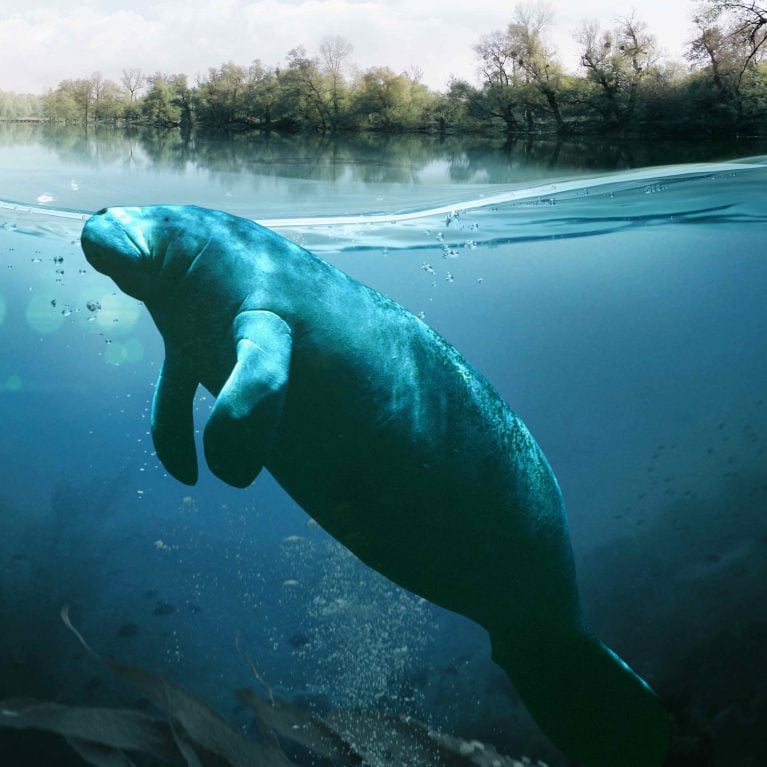Secrets of the African manatee
Although they are found in 21 countries, African manatees are rare and incredibly secretive. Lucy is creating a network of collaborators to help her learn more about this forgotten sirenian and how to conserve it.

African manatee research and conservation
The key objective of this project is to build a network of trained African researchers from all range countries of the African manatee who will collect critical baseline data, enable grassroots conservation actions and disseminate research findings.
The African manatee is one of the least understood and least studied marine mammals in the world. Conservation efforts are hindered by a lack of basic information about the species and are also unsustainable without local capacity building.
The African manatee Trichechus senegalensis is listed as Vulnerable on the IUCN Red List of Threatened Species but without adequate information regarding African manatee populations, effective conservation actions are impossible, putting the species at even greater risk. The African manatee is highly elusive, lives in very remote locations and is subject to intense hunting pressure and habitat alteration throughout its range.
This project builds on on-going work to identify African researchers in all 21 countries in the African manatee’s range along the African Atlantic coast from Mauritania to Angola, as well as the interior countries of Mali, Niger and Chad to build a collaborative network. The project will provide training, fieldwork experience and basic equipment to local biologists, resource managers, and university- and graduate-level students, empowering them to advance scientific knowledge of this vulnerable species and increasing their long-term capacity for conservation in their countries. It will also improve communication between researchers and foster regional collaboration.
By building a cohesive network of people invested in manatee research, training researchers on the ground and genetic sampling at multiple field sites, this project will create a cadre of professionals who can lead future research, conservation and educational outreach initiatives tailored to the situation in their countries.
The ultimate goal is to train as many people as possible and remove their sense of isolation so they can successfully manage manatee populations in their countries, and effectively communicate their actions and results to the world audience. This will be achieved by:
- Identifying collaborators from all countries in the African manatee’s range and continuing to build a network for manatee research.
- Providing in-depth training in manatee field research techniques through workshops and practical experience at manatee study sites.
- Assisting with the development of research plans tailored to specific countries or regions.
- Providing basic field equipment, and training on its use and maintenance, to African collaborators in need.
- Conducting baseline boat and interview surveys in selected river, lagoon and coastal sites to determine manatee presence, the impact of threats and suitable habitat. Interviews will ascertain biological, cultural and economic issues, and will help inform recommendations for conservation actions.
- Conducting the first regional genetics analysis throughout the species range.
- Collecting and analysing biological samples from live manatees and carcasses to understand the baseline health of wild populations.
- Increasing the number of manatee-related outreach activities in range countries.
- Communicating results with collaborators, governments and the scientific community. “

